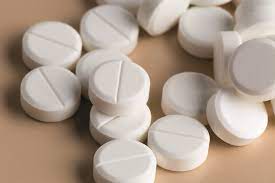If you’ve gained a few kilos, eating an extra apple or two a day may have an impact on boosting your immune system and helping ward off COVID-19 and winter illnesses.
New research from the University of Otago in Christchurch is the first to determine how much extra vitamin C humans need, relative to their body weight, to maximize their immune health.

The study, co-authored by Anitra Carr, an associate professor in the university’s Department of Pathology and Biomedical Sciences, found that for every 10 kilograms of excess weight a person gained, their body needed an extra 10 milligrams of vitamin C per day, which would help optimize their diet. immune health.
“Previous research has linked higher body weight with lower vitamin C levels,” said lead author Associate Professor Carr.”But this is the first study to estimate how much extra vitamin C people actually need each day (relative to their body weight) to help maximize health.”

Published in the international journal Nutrients, the study, co-authored with two researchers from the US and Denmark, combines the results of two earlier major international studies.
Associate Professor Carr said its new findings have important implications for international public health – especially in light of the current COVID-19 pandemic – as vitamin C is an important immune-supporting nutrient essential for helping the body protect itself from severe viral infections Disease attacks is crucial.
Although specific studies on dietary intake for COVID-19 have not been conducted, Associate Professor Carr said the findings may help heavier people to better protect themselves from the disease.
“We know that obesity is a risk factor for contracting COVID-19 and that people with obesity are more likely to have difficulty fighting it once infected. We also know that vitamin C is essential for good immune function and works by helping white blood cells fight infection. Therefore, the results of this study suggest that if you are overweight, increasing your intake of vitamin C may be a sensible response.

“Pneumonia is a major complication of COVID-19, and people with pneumonia are known to have low levels of vitamin C. International research has shown that vitamin C reduces the likelihood and severity of pneumonia in people, so finding the right level of vitamin C is important if You are overweight and taking C may help support your immune system better,” Associate Professor Carr said.
The study determined how much vitamin C was needed in people with higher body weight, while people with a starting base weight of 60kg consumed an average of 110mg of dietary vitamin C per day in New Zealand, which most people achieve through a balanced diet. In other words, a person weighing 90 kg would need an additional 30 mg of vitamin C to reach the optimal goal of 140 mg/day, while a person weighing 120 kg would need at least an additional 40 mg of vitamin C per day to reach the optimal 150 mg/day. sky.
Associate Professor Carr said the easiest way to increase your daily intake of vitamin C is to increase your intake of vitamin C-rich foods such as fruits and vegetables or take a vitamin C supplement.
“The old adage ‘an apple a day keeps the doctor away is actually useful advice here. An average-sized apple contains 10 mg of vitamin C, so if you weigh between 70 and 80 kg, your Optimal levels of vitamin C are reached. Physical needs may be as simple as eating an extra apple or two, giving your body 10 to 20 mg of vitamin C per day it needs. If you weigh more than this, Then maybe an orange with 70 mg of vitamin C, or a 100 mg kiwi, might be the easiest solution.”
However, she said, taking vitamin C supplements is a good option for those who don’t like to eat fruit, have a restricted diet (such as those with diabetes), or have difficulty accessing fresh fruits and vegetables due to financial hardship.
“There are a wide variety of over-the-counter vitamin C supplements, and most are relatively inexpensive, safe to use, and readily available from your local supermarket, pharmacy, or online.
For those who choose to get their vitamin C from a multivitamin, my advice is to check the exact amount of vitamin C in each tablet, as some multivitamin formulas may contain very low doses,” Associate Professor Carr said.
Post time: May-05-2022




